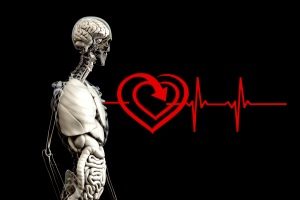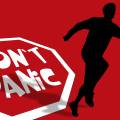One Panic Treatment Basic that Even Your Therapist Might not Know

Panic has a secret ally. Although beneficial in many different contexts, this ally has the potential to dramatically increase your symptoms of panic and anxiety.
If you have panic disorder or suffer from panic attacks or agoraphobia, chances are you might be inadvertently doing one simple thing that is making your panic attacks and anxiety worse. You might have even learned this strategy from your therapist. Although beneficial in many different contexts, when used inappropriately, this technique has the potential to dramatically increase symptoms of anxiety and panic.
The technique in question? Deep breathing.
What is deep breathing?
Deep breathing, or diaphragmatic breathing, is a core coping skill taught by many excellent therapists of diverse theoretical orientations. It is a technique that has a long and revered history in the field of psychology due to its anxiety-reducing (anxiolytic) effects. Used alone or when combined with other strategies, such as visual imagery or progressive muscle relaxation (PMR), deep breathing can be a potent aid to relaxation. It is applicable to a wide range of stressors, requires no equipment aside from what you carry around with you in your head, and can be brought to bear quickly and discretely at work, school, or any other place you might need it.
As such, deep breathing is a powerful technique to have in your coping toolkit.
In addition to being useful for managing anxiety, proficiency in regulating your diaphragm also increases your vocal control, which helps you sound more confident when speaking. It is this vocal control that gives public speakers and opera singers alike the ability to better regulate vocal tone, exert vocal power when needed, and (in the case of the opera singer) sustain notes over long intervals. Prior to being formally trained in diaphragmatic breathing (deep breathing), most people have only a limited sensory awareness of how to properly control the diaphragm muscle and regulate their breath.
When asked to breathe deeply, most untrained individuals intuitively raise their shoulders in an effort to draw in more air. This strategy actually results in shallow, inefficient breaths because it doesn’t allow the diaphragm to lower properly and create room for lung expansion. For deep breaths, your belly should expand downward and outward (rather than upward and inward). This is the type of breathing you naturally use when you’re sleeping or lying on your back. For additional guidance on deep breathing, ask your therapist (or vocal coach!) to teach you the basics; remember, however, that lots of practice is necessary to gain greater breath control. As always, I am available for consultation and treatment in West Palm Beach, Palm Beach Gardens, Jupiter, Fort Lauderdale, Miami, and other South Florida communities for any panic attack- or anxiety-related issues.
Deep breathing sounds innocent enough. How could it possibly worsen panic?
The answer boils down to the physiology of panic.
When you take rapid deep breaths (or hyperventilate), you disrupt the delicate balance of oxygen and carbon dioxide in your bloodstream. Carbon dioxide (CO2) levels plummet because you are expelling more carbon dioxide than you are producing. These decreased CO2 levels raise your blood’s pH (and make it more alkaline), which causes the blood vessels supplying your brain to constrict. This limits the amount of oxygen and other nutrients that are able to cross the blood-brain barrier and reach your brain.
Side effects of this physiological process include dizziness, lightheadedness, tingling, and suffocating sensations. When most people experience these types of symptoms, they tend to breathe even more rapidly to “get enough air”…which actually increases symptom intensity. Thus, rapid deep breathing can set off a self-perpetuating positive feedback loop that can worsen symptoms or cause full-blown panic attacks.
If you pay close attention to the way that individuals with panic breathe, you might observe some abnormalities. Try to notice the quality of their breathing and the pace of their breaths. Do they sigh more? Take more labored breaths? Expel air forcefully when they exhale? Over-regulate their air intake? Although these characteristics don’t affect most people with panic attacks, these learned behaviors do affect a small number of people with panic and often take concerted effort to change.
If your therapist hasn’t shared information about the dual nature of deep breathing with you, cut them some slack. Deep breathing remains a core component of many panic treatment protocols and is included in even the newest revisions of some very popular panic workbooks. However, many newer protocols are now advocating an approach called “paced breathing” which includes instructions for limiting the number of breaths you take per minute in order to avoid hyperventilating. Other strategies utilizing biofeedback are also getting some recent empirical attention, due to the promise they hold for teaching individuals with panic to self-regulate their breathing.
Next time you have a panic attack, consider resisting the urge to “take a deep breath.” If you do decide to take that breath, you might unwittingly unleash additional symptoms on yourself and kick your panic into overdrive.
UPDATE: Read more about our recently launched group therapy program for panic and agoraphobia.
Questions? Comments? Sound off below.
Want Updates about New Content?
Follow Me!
Follow @drstevenseay












I have been reading online about panic attacks. They say that panic attacks aren’t good for us, at more risk for this or that. They teach people with panic attacks that it will not harm them. But excercise is good for us. What? Panic is like running. Fight or Flight responds..
The fight-or-flight system is a natural, adaptive response that is related to survival. Unfortunately, in panic attacks, this system gets inappropriately activated. However, panic attacks themselves are not dangerous; they are merely uncomfortable.
This article scared me considering I have breathing awareness ocd. Now I think the fact that I control my breathing will actually cause me to hyperventilate 🙁
If your symptoms are affecting your quality of life, consider working with a psychologist to help you address your breathing symptoms.